Introduction: Understanding Apartheid and U.S. Foreign Policy
By Esther Claudette Gittens
Apartheid is a term that is most commonly associated with South Africa’s institutionalized system of racial segregation and discrimination, which officially ended in 1994. However, apartheid has since been expanded in its definition by international human rights bodies, such as the United Nations and Human Rights Watch, to include any systemic and institutionalized regime of racial, ethnic, or social segregation. Apartheid is not merely a historical phenomenon but also a present-day concern, with various countries implementing policies that discriminate against minorities, segregate communities, or limit civil and political rights based on race, ethnicity, religion, or other characteristics. Read more at www.askthelawyer.us. To read the complete analysis in our publication, click here, and on our civil rights blog, click here.
In this analysis, we will explore nations accused of enforcing apartheid-like conditions, as well as the role the United States has played in supporting these regimes. While the U.S. has been a self-proclaimed champion of democracy and human rights, its foreign policy, in practice, has often supported authoritarian and discriminatory regimes. These relationships have been shaped by a complex set of factors, including economic interests, geopolitical strategy, and historical alliances.
The Definition of Apartheid: Beyond South Africa
The term “apartheid” originates from the Afrikaans word meaning “separateness” and was used to describe the system of racial segregation that defined South African politics and society from 1948 until 1994. During apartheid, the white minority government enforced racial segregation through legislation, denied political rights to the black majority, and restricted their movement, residence, and access to public services.
Apartheid has since become a term used by human rights organizations to describe systems that exhibit similar characteristics of institutionalized discrimination, whether based on race, ethnicity, or religion. For instance, the International Criminal Court (ICC) defines apartheid as an inhumane act committed in the context of an institutionalized regime of systematic oppression and domination by one racial group over another, with the intent of maintaining that regime.
While some modern cases of apartheid are not as overt as the South African model, several countries have been accused of enforcing policies that resemble apartheid, especially in their treatment of minority populations. These accusations often center around policies that enforce segregation, restrict movement, limit political representation, and maintain economic disparities between groups.
U.S. Foreign Policy and Apartheid Systems
The U.S. has often found itself at odds with its own democratic ideals when forming alliances with countries that maintain discriminatory or authoritarian regimes. This tension is a product of the broader geopolitical doctrine known as realpolitik, which prioritizes national interests, economic security, and military strategy over moral or ethical considerations.
Historically, the U.S. has justified its support for regimes with apartheid-like systems by pointing to the larger strategic goals at play. During the Cold War, for instance, the U.S. aligned itself with authoritarian governments and apartheid South Africa to prevent the spread of communism, which was seen as a greater threat than internal human rights abuses. Today, similar justifications are made when the U.S. supports countries like Israel, Saudi Arabia, or Myanmar, arguing that strategic interests such as military cooperation, access to resources, or counterterrorism efforts take precedence over the moral imperative to confront apartheid-like practices.
This contradiction between ideology and practice remains one of the central tensions in U.S. foreign policy. On the one hand, the U.S. continues to promote democracy and human rights, and on the other, it often aligns itself with regimes accused of systemic oppression. This inconsistency has led to growing criticism, both domestically and internationally, of U.S. foreign policy decisions.
Case Studies in Modern Apartheid Systems
To understand the complex relationship between U.S. foreign policy and apartheid-like systems, we will examine several countries where allegations of systemic segregation and discrimination persist. These countries have been accused by international organizations of violating human rights and enforcing discriminatory practices, yet they continue to receive political, economic, or military support from the United States.
Among the most prominent cases is Israel, where the Israeli-Palestinian conflict has drawn accusations of apartheid from numerous human rights groups. The Israeli government has been accused of implementing policies in the West Bank and Gaza Strip that create a system of segregation and inequality, especially in terms of settlement expansion, movement restrictions, and political disenfranchisement of Palestinians. Despite these allegations, the U.S. continues to provide significant military aid and political support to Israel, citing its importance as a strategic ally in the Middle East.
Similarly, in Myanmar, the Rohingya Muslim minority has been subjected to systematic discrimination, forced displacement, and apartheid-like conditions. The U.S. has condemned Myanmar’s treatment of the Rohingya but has been criticized for not taking stronger action against the government, particularly in light of Myanmar’s geopolitical importance in the region.
Additionally, we will examine cases in India (with its caste system and social segregation), Saudi Arabia (with gender and sectarian discrimination), and other nations where the U.S. has maintained strategic relationships despite ongoing human rights abuses.
Shimla, Himachal Pradesh/India-September 16, 2020: People of dalit community held a protest outside the HP Vidhan Sabha over exploitation, widespread caste discrimination and violence
Editorial credit: Madan Sehgal / shutterstock.com
Support
Introduction to Apartheid in South Africa
South Africa’s apartheid system, established in 1948 and lasting until 1994, is the most infamous example of institutionalized racial segregation. The system was based on white minority rule, which enforced strict racial divisions between white South Africans and non-white populations (primarily Black, Colored, and Indian communities). The African National Congress (ANC) and other resistance movements fought against apartheid, often at great personal and political cost. Meanwhile, the United States played a complex and often contradictory role in its relationship with apartheid South Africa, oscillating between tacit support, economic cooperation, and eventual diplomatic pressure.
Origins of U.S. Support for Apartheid South Africa
The U.S. had historically strong economic ties with South Africa, particularly in the areas of mining and trade. American corporations were heavily invested in South Africa’s natural resources, including gold, diamonds, and uranium. During the Cold War, U.S. policymakers were primarily concerned with containing the spread of communism, and South Africa became a key ally in this regard. The U.S. saw South Africa as a bastion of anti-communism in southern Africa, surrounded by states that were perceived as vulnerable to Soviet influence.
Despite South Africa’s oppressive apartheid system, the U.S. valued the country’s strategic importance and its wealth of resources. This strategic partnership was built on economic and military cooperation, as well as shared ideological goals in the context of the Cold War.
Economic Interests: Mining, Trade, and Investments
One of the most significant factors driving U.S. support for apartheid South Africa was economic interest. South Africa was (and remains) a global powerhouse in mining, particularly in gold, diamonds, and platinum, and U.S. companies were deeply invested in these industries. American corporations such as IBM, Ford, and General Motors had significant operations in South Africa, benefiting from cheap labor provided by apartheid policies.
The U.S. government, while publicly denouncing apartheid on occasion, did little to disrupt these economic ties. The anti-communist orientation of South Africa’s government, coupled with its economic importance, led to a continuation of trade relations and investment flows. American banks and financial institutions provided loans to the apartheid regime, allowing it to weather periods of economic difficulty and international condemnation.
Cold War Geopolitics: The “Lesser Evil” Doctrine
During the Cold War, U.S. foreign policy often revolved around the concept of realpolitik, where ideological commitments to democracy and human rights were subordinated to pragmatic considerations. This led to the U.S. frequently aligning itself with authoritarian regimes that it believed would prevent the spread of communism. In South Africa, the National Party government presented itself as a staunch anti-communist ally, crucial for U.S. interests in Africa.
The U.S. viewed the African National Congress (ANC), the main opposition to apartheid, as a potential conduit for communist influence due to the ANC’s ties with the Soviet Union and socialist governments. Nelson Mandela and other ANC leaders were seen, during the Cold War era, as radical leftists who could destabilize southern Africa and potentially align the region with Moscow. Therefore, from a U.S. perspective, maintaining a relationship with South Africa’s apartheid regime was a means of containing communist expansion on the African continent.
Military and Strategic Cooperation
Apartheid South Africa was an important military partner for the U.S. during the Cold War. In the 1960s and 1970s, the U.S. and South Africa cooperated in intelligence sharing, particularly in relation to African liberation movements that were supported by the Soviet Union and China. The South African government provided critical intelligence on the activities of Soviet-aligned insurgents in neighboring countries like Angola, Mozambique, and Namibia. Additionally, the U.S. maintained military ties with South Africa through arms sales and military training, despite the United Nations’ arms embargo.
The geographic location of South Africa was also strategically significant. The country’s control of sea routes around the Cape of Good Hope, a critical juncture in global maritime trade, was vital to U.S. interests, especially in ensuring the safe passage of oil and other critical goods during the Cold War.
U.S. Reluctance to Impose Sanctions
Throughout the 1970s and early 1980s, calls for economic sanctions against South Africa grew louder, especially in light of mounting global opposition to apartheid. However, the U.S. government, under both Democratic and Republican administrations, resisted such measures for many years. While European countries and global institutions began imposing sanctions and embargoes, the U.S. continued its economic and military cooperation with the apartheid regime. The Reagan administration’s policy of “constructive engagement” sought to maintain dialogue with South Africa while encouraging gradual reforms, rather than the more aggressive approach of imposing sanctions.
American corporations, particularly those with significant investments in South Africa, lobbied against sanctions, fearing the loss of profitable operations. Additionally, Cold War considerations meant that any destabilization of South Africa was viewed as a risk to broader U.S. strategic interests. For many in the U.S. government, a destabilized South Africa could fall into chaos or communist influence, which would be worse than the continuation of apartheid.
The Role of U.S. Corporations
U.S. corporations played a crucial role in sustaining the apartheid regime, benefiting from the economic advantages provided by the system, particularly cheap labor. Many American firms, such as Ford, General Motors, Coca-Cola, and IBM, operated in South Africa throughout the apartheid period. These corporations profited from apartheid’s system of labor control, which restricted Black South Africans’ access to high-paying jobs and segregated workforces.
Although many companies faced public pressure to divest from South Africa, some resisted for years, arguing that their presence helped promote change from within. This notion of “corporate diplomacy” was often used to justify ongoing investment, with corporations claiming they could promote better conditions for Black workers through reforms rather than outright divestment. However, many critics viewed these arguments as a facade to justify continued profit-making under an oppressive system.
The Shift in U.S. Policy: Sanctions and Pressure
By the mid-1980s, pressure to change U.S. policy towards South Africa reached a tipping point. The anti-apartheid movement had gained significant traction in the U.S., with grassroots organizations, student groups, and prominent figures like Bishop Desmond Tutu and Nelson Mandela urging the U.S. government to impose sanctions on the apartheid regime. This culminated in the passage of the Comprehensive Anti-Apartheid Act in 1986, which imposed economic sanctions on South Africa, including bans on new investments and loans to the South African government.
The Reagan administration vetoed the bill, but Congress overrode the veto, marking a significant shift in U.S. policy. Sanctions, along with global pressure and internal unrest in South Africa, contributed to the eventual dismantling of apartheid in the early 1990s.
The End of Apartheid and Lessons Learned
The end of apartheid in South Africa was a significant moment in global politics and a testament to the power of sustained resistance, both internally and externally. The U.S., after decades of supporting the apartheid regime or engaging in a passive policy of “constructive engagement,” played a critical role in the final stages by applying economic and diplomatic pressure.
The lessons of U.S. support for apartheid South Africa have been echoed in subsequent U.S. foreign policy debates. The willingness to prioritize economic and strategic interests over human rights has remained a constant theme in U.S. dealings with regimes that exhibit apartheid-like characteristics, including Israel (in the context of the Israeli-Palestinian conflict) and Saudi Arabia (with its treatment of women and minority groups).
- Israel and Palestine: Allegations of Apartheid
Introduction to the Israeli-Palestinian Conflict
The Israeli-Palestinian conflict, which has persisted for over a century, has become a focal point for global discourse on human rights and international law. Israel’s control over the West Bank, Gaza, and East Jerusalem, and its treatment of the Palestinian population, has led to accusations of apartheid from international human rights organizations like Human Rights Watch and Amnesty International. These accusations are based on allegations that Israel implements a system of segregation and discrimination, particularly in the occupied territories, where Palestinians are subject to military rule and denied many basic rights that Israeli citizens enjoy.
The U.S. has been a steadfast ally of Israel since its establishment in 1948, providing military, economic, and diplomatic support. This relationship has continued despite increasing global criticism of Israeli policies towards Palestinians, leading many to question the reasons behind U.S. support for a state accused of apartheid.
Definitions of Apartheid Applied to Israel
The term “apartheid” in the context of Israel is highly controversial. Israeli officials and many of its supporters reject the label, arguing that Israel is a democratic state with equal rights for all its citizens, including Arab Israelis (Palestinian citizens of Israel). However, critics argue that while Arab Israelis enjoy nominal legal rights, they still face discrimination in areas like housing, education, and political participation. More significantly, critics focus on Israeli policies in the West Bank, Gaza, and East Jerusalem, where Palestinians are subject to military law, face severe restrictions on movement, and live under occupation.
International bodies like the United Nations have increasingly drawn comparisons between Israeli policies and apartheid, particularly with regard to the separate legal systems that apply to Israeli settlers and Palestinians in the occupied territories. Israeli settlers in the West Bank live under Israeli civil law and enjoy full citizenship rights, while Palestinians are governed by Israeli military law and face numerous restrictions.
U.S. Strategic Interests in Israel
One of the primary reasons for U.S. support of Israel, despite the apartheid allegations, is strategic interest. Israel is a key ally in the Middle East, a region that has historically been volatile and central to U.S. geopolitical concerns. The U.S. has long viewed Israel as a stable and reliable partner in a region where many governments are authoritarian and unpredictable. Israel’s military strength and technological advancements also make it an important ally for the U.S. in terms of defense and intelligence-sharing.
The U.S. provides Israel with substantial military aid, totaling over $3.8 billion annually. This support has helped Israel maintain its military superiority in the region, which the U.S. views as essential for regional stability and the containment of hostile actors like Iran. Additionally, Israel’s advanced defense industry is closely integrated with the U.S., leading to joint projects and arms deals that benefit both countries.
Israeli Policies in the West Bank and Gaza: Segregation and Settlement Expansion
The primary focus of apartheid allegations against Israel is its policies in the West Bank and Gaza. The West Bank, occupied by Israel since the 1967 Six-Day War, is home to over 2.5 million Palestinians and approximately 700,000 Israeli settlers. The Israeli government has supported the expansion of settlements in the West Bank, which are illegal under international law but continue to grow with U.S. backing or acquiescence.
Palestinians in the West Bank live under a system of segregation, where Israeli settlers are governed by Israeli civil law and have access to modern infrastructure, while Palestinians live under military law, face restrictions on movement, and are subject to house demolitions and land confiscation. The separation wall (or security barrier), built by Israel ostensibly for security purposes, further divides Palestinian communities and restricts their access to essential services, jobs, and family networks.
In Gaza, home to about 2 million Palestinians, the situation is even more dire. Since 2007, when Hamas took control of the territory, Israel has imposed a blockade on Gaza, severely restricting the movement of goods and people in and out of the area. This has led to a humanitarian crisis, with high levels of poverty, unemployment, and limited access to basic services like clean water and electricity. While Israel argues that these measures are necessary for its security, given Hamas’s attacks on Israeli civilians, critics point out that the blockade collectively punishes the entire population of Gaza, further entrenching conditions that resemble apartheid.
U.S. Military and Diplomatic Support for Israel
The U.S. has consistently provided Israel with robust military and diplomatic support, despite mounting international criticism. This support has been justified by U.S. administrations as necessary for ensuring Israel’s security in a hostile region. The U.S. has used its veto power in the United Nations Security Council to block numerous resolutions condemning Israel’s actions in the occupied territories, including calls for investigations into alleged war crimes during conflicts with Gaza.
Critics argue that U.S. support has enabled Israel to continue its policies without fear of significant consequences. For example, U.S. military aid is used to purchase advanced weaponry and defense systems, such as the Iron Dome missile defense system, which has been essential in protecting Israeli civilians from rocket attacks. While these defense measures are justified in the context of security, the broader U.S. military assistance indirectly supports Israel’s ability to maintain its occupation and expand settlements.
Human Rights Concerns and Criticism of U.S. Policy
The apartheid allegations against Israel have sparked significant debate in the U.S., particularly among human rights organizations, academics, and progressive political groups. These critics argue that U.S. support for Israel, despite its policies towards Palestinians, undermines America’s moral authority and global standing as a champion of human rights. They point to reports from organizations like Human Rights Watch and Amnesty International, which have accused Israel of maintaining an apartheid system, and call for a reevaluation of U.S. foreign policy in the region.
The U.S. government, however, continues to maintain that Israel is a vital ally and that any measures to pressure Israel—such as cutting military aid or imposing sanctions—would destabilize the region and harm U.S. interests. This has led to a deep divide within U.S. politics, with some advocating for continued unconditional support for Israel and others calling for a more balanced approach that takes Palestinian rights into account.
The Future of U.S.-Israel Relations and Apartheid Allegations
The future of U.S.-Israel relations will likely continue to be shaped by both strategic interests and domestic political considerations. While the U.S. remains Israel’s strongest ally, there are growing calls from within the U.S. to reconsider the level of support provided, especially in light of apartheid allegations. Whether the U.S. will take a more active role in pressuring Israel to address the Palestinian issue remains uncertain, but the discourse around apartheid and human rights violations will continue to be a significant part of this relationship moving forward.
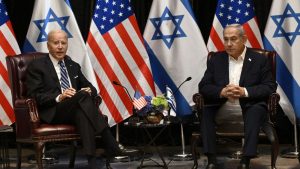
US President Joe Biden (L) listens to Israel’s Prime Minister Benjamin Netanyahu as he joins a meeting of the Israeli war cabinet in Tel Aviv on October 18, 2023, battles between Israel and Hamas
Editorial credit: Prashantrajsingh /shutterstock.com
- The Case of Myanmar (Burma): Ethnic Discrimination and Apartheid-like Systems
Introduction to Ethnic Discrimination in Myanmar
Myanmar (formerly Burma) has faced decades of internal conflict and ethnic strife, with the Rohingya Muslim minority suffering the most severe forms of persecution. Described as the world’s most persecuted minority by the United Nations, the Rohingya have endured systematic discrimination, violence, and forced displacement at the hands of Myanmar’s military and government. While the term “apartheid” has typically been associated with racial segregation, many human rights organizations have applied it to Myanmar’s treatment of the Rohingya, drawing parallels between the institutionalized system of exclusion they face and other historic forms of apartheid.
The U.S. response to the situation in Myanmar has been mixed. While American officials have condemned the violence against the Rohingya, the U.S. has stopped short of taking decisive actions that could severely penalize Myanmar’s government. This hesitation is tied to the geopolitical landscape of Southeast Asia, particularly the U.S. interest in limiting Chinese influence in the region.
Historical Context: The Rohingya Crisis
The Rohingya people, a predominantly Muslim ethnic group in Myanmar’s Rakhine State, have been denied citizenship since the passage of the 1982 Burmese nationality law, rendering them stateless. The law recognizes 135 ethnic groups in Myanmar but excludes the Rohingya, who are regarded as illegal immigrants from Bangladesh, despite many having lived in Myanmar for generations. The Rohingya have faced decades of systematic oppression, including restrictions on movement, education, marriage, and employment.
The situation escalated dramatically in 2017, when Myanmar’s military launched a brutal crackdown on Rohingya villages in response to attacks by a militant group, the Arakan Rohingya Salvation Army (ARSA). The military operation, described as a “textbook example of ethnic cleansing” by the United Nations, resulted in widespread reports of mass killings, sexual violence, and the burning of villages. Over 700,000 Rohingya fled to neighboring Bangladesh, creating one of the largest refugee crises in the world.
Apartheid-like Conditions in Myanmar
The Rohingya in Myanmar live under conditions that human rights groups liken to apartheid. The government has systematically segregated them from the rest of the population, particularly through their confinement to camps and restricted areas within Rakhine State. Movement is severely limited, with Rohingya requiring special permits to travel outside their villages, and they are often subjected to extortion by local authorities. Access to healthcare and education is also restricted, further marginalizing the community.
This system of segregation is institutionalized through laws and practices that isolate the Rohingya, preventing them from integrating into broader Burmese society. The comparison to apartheid stems from the legal, political, and economic structures that reinforce the subjugation of the Rohingya. Just as apartheid in South Africa created separate spaces for different racial groups, Myanmar’s policies have created a divided society where the Rohingya are systematically excluded from citizenship, political participation, and social services.
U.S. Response to the Rohingya Crisis
The U.S. government has consistently expressed concern over the Rohingya crisis, particularly during the height of the violence in 2017. The Trump administration imposed targeted sanctions on a few military leaders responsible for the violence, but these measures were widely seen as insufficient given the scale of the atrocities. Moreover, the U.S. refrained from imposing broad economic sanctions on Myanmar, as it did during the military junta’s rule from the 1960s to 2011.
The U.S. government’s reluctance to take stronger action against Myanmar can be attributed to several factors. First, Myanmar’s strategic importance in Southeast Asia makes it a focal point in the U.S.-China rivalry. The U.S. has sought to build stronger relations with Myanmar since its democratic transition began in 2011, aiming to counterbalance China’s influence in the region. Myanmar’s location, bordering India and China, makes it a key player in the geopolitical competition for influence in Asia, and the U.S. has been careful not to push Myanmar too far into China’s orbit.
Second, while the U.S. has condemned the violence against the Rohingya, it has been hesitant to label the situation as “genocide” or “apartheid,” terms that would likely trigger stronger international action. Instead, the U.S. has focused on humanitarian assistance, providing aid to Rohingya refugees in Bangladesh and supporting efforts to investigate human rights abuses through the United Nations and the International Criminal Court.
Geopolitical Balancing Act: U.S. Interests in Myanmar
Myanmar’s strategic location and its role in regional security dynamics have complicated U.S. foreign policy decisions. The country has long been a battleground for influence between China and the West, particularly since Myanmar’s partial transition to democracy in 2011, when the military allowed a civilian government to share power. The U.S. and other Western nations quickly moved to engage with Myanmar, lifting sanctions and providing development aid in the hopes of supporting further democratization and economic liberalization.
However, the Rohingya crisis has strained Myanmar’s relations with the West, especially as the civilian government led by Aung San Suu Kyi—once a symbol of democratic resistance—failed to address or even acknowledge the severity of the human rights abuses. Despite this, the U.S. has been cautious in its approach to Myanmar, fearing that more aggressive actions, such as re-imposing broad sanctions, could drive the country closer to China.
China has significant investments in Myanmar, including major infrastructure projects like pipelines and ports that are part of its Belt and Road Initiative. The U.S. is wary of ceding influence in Myanmar to China, especially given the strategic importance of Southeast Asia. As a result, U.S. policymakers have attempted to balance condemning human rights abuses with maintaining diplomatic and economic engagement with Myanmar’s government.
Criticism of U.S. Policy
Human rights advocates have criticized the U.S. for its muted response to the Rohingya crisis, arguing that geopolitical considerations should not outweigh the moral imperative to hold Myanmar’s military accountable for crimes against humanity. Many believe that the U.S. could have done more to pressure Myanmar’s government, including imposing stronger sanctions, cutting military ties, or pushing for a more robust international response.
The U.S. has been accused of prioritizing its strategic interests in the region over the plight of the Rohingya, much as it did in its support for apartheid South Africa during the Cold War. While the U.S. provides humanitarian aid to Rohingya refugees, critics argue that this does little to address the root causes of the crisis or to hold the perpetrators accountable. The failure to label the atrocities as genocide or apartheid has also been seen as a missed opportunity to galvanize international action.
The Future of U.S. Engagement with Myanmar Post-Coup
In February 2021, Myanmar’s military seized power in a coup, ousting the civilian government led by Aung San Suu Kyi. This development has further complicated U.S. policy toward Myanmar. The Biden administration responded by imposing targeted sanctions on military leaders and state-owned enterprises, but the broader U.S. strategy remains unclear. The coup has set back Myanmar’s democratic progress and increased the likelihood of the country becoming more dependent on China.
The Rohingya crisis remains unresolved, with hundreds of thousands of refugees still living in camps in Bangladesh and little prospect of their safe return to Myanmar. The military’s return to power raises questions about whether the U.S. will take a more confrontational stance against the regime, especially given its track record of human rights abuses. However, the U.S. must also consider the broader geopolitical implications of its actions, particularly in relation to China’s influence in the region.
Conclusion: U.S. Hesitation in Addressing Myanmar’s Apartheid-like System
The U.S. response to the Rohingya crisis reflects the broader challenges of balancing human rights concerns with strategic interests. While the U.S. has condemned the violence and provided humanitarian aid, it has stopped short of taking more decisive actions that could have pressured Myanmar’s government to change its policies. This hesitance is driven by concerns about China’s influence and the broader geopolitical context of Southeast Asia.
The parallels between Myanmar’s treatment of the Rohingya and apartheid systems elsewhere are striking, particularly in the ways that the state has used legal and social structures to marginalize and segregate a minority population. Yet, as with other cases of apartheid-like systems, U.S. foreign policy has often prioritized geopolitical considerations over a more robust commitment to human rights.
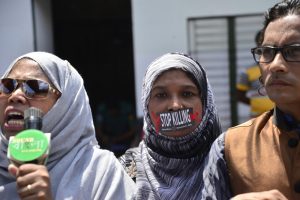
Bangladeshi peoples protest rally against violence on Rohingya people of Myanmar in front of National Press Club in Dhaka, Bangladesh. On September 08, 2017
Editorial credit: Mamunur Rashid / shutterstock.com
- India: Caste System and Social Segregation
Introduction to the Caste System in India
While not formally recognized as an apartheid system, India’s caste system has long been a source of deep social and economic division, particularly for the Dalits (formerly known as “Untouchables”), who face systemic discrimination akin to racial apartheid in other parts of the world. The caste system, which has roots in Hinduism and has existed for over 2,000 years, organizes society into rigid hierarchical groups based on inherited status. Despite legal reforms aimed at eliminating caste-based discrimination, including the adoption of a constitution that outlaws caste-based discrimination, millions of Dalits continue to face segregation, violence, and exclusion.
The United States has had a complex relationship with India, viewing it as a key democratic partner in the Indo-Pacific region. While U.S. foreign policy has often focused on trade, military cooperation, and counterbalancing China’s rise, the issue of caste-based discrimination has received relatively little attention in the bilateral relationship. U.S. policymakers have largely avoided addressing caste discrimination in their interactions with India, instead focusing on broader strategic concerns.
Caste-based Segregation: Parallels to Apartheid
The caste system divides Indian society into four main varnas (castes) and a group outside the system known as Dalits. Historically, Dalits have been subjected to severe social exclusion, restricted to menial jobs, and segregated from the rest of society. Even though the Indian government has implemented affirmative action policies (reservations) to improve access to education and employment for Dalits and other marginalized groups, caste-based discrimination remains pervasive, especially in rural areas.
The parallels between the caste system and apartheid are evident in the way Dalits are segregated in housing, education, and employment. In many villages, Dalits are forced to live in separate quarters, often without access to basic services like clean water or electricity. In schools, Dalit children are frequently discriminated against, facing bullying and exclusion from classrooms. Economically, Dalits remain concentrated in low-paying, manual labor jobs, with little opportunity for upward mobility.
Despite these conditions, the issue of caste discrimination has not been a central concern in U.S. foreign policy toward India. The U.S. has largely focused on fostering economic ties, military cooperation, and a strategic partnership to counter China’s influence in Asia, rather than addressing India’s internal social issues.
U.S.-India Relations: Strategic Partnership Overshadows Human Rights Concerns
U.S. support for India is driven by several strategic interests, most notably the need to counterbalance China’s growing influence in the Indo-Pacific region. India, as the world’s largest democracy and a major regional power, plays a crucial role in U.S. geopolitical calculations. This strategic partnership has resulted in increased military cooperation, including joint military exercises, defense agreements, and arms sales.
Economic interests also play a significant role in the U.S.-India relationship. India is a rapidly growing market, with a burgeoning middle class and a thriving technology sector. U.S. companies, particularly in the tech industry, have significant investments in India, and the two countries have strong trade ties. These economic and strategic considerations have taken precedence over concerns about human rights, including caste-based discrimination.
The U.S. has historically been hesitant to criticize India on human rights issues, particularly given India’s sensitivity to foreign interference in its domestic affairs. Moreover, India’s growing importance as a counterweight to China has further dissuaded U.S. policymakers from pushing too hard on issues like caste discrimination. The U.S. tends to emphasize shared democratic values and strategic interests, rather than addressing the internal social hierarchies that perpetuate inequality.
Criticism of Caste-based Discrimination and U.S. Policy
While caste-based discrimination is rarely addressed in high-level diplomatic talks, it has become a focus for civil society groups and human rights organizations, both in India and internationally. Dalit activists and their allies have worked to raise awareness of caste-based discrimination in global forums, arguing that the U.S. and other Western democracies should take a stronger stand on the issue.
Some activists have drawn comparisons between the civil rights movement in the U.S. and the struggle for Dalit rights in India, arguing that the U.S. has a moral obligation to speak out against caste-based oppression. However, U.S. policymakers have largely avoided engaging with this issue in their dealings with India, focusing instead on economic and strategic concerns.
This reluctance has drawn criticism from human rights advocates, who argue that the U.S. is turning a blind eye to caste-based apartheid in its pursuit of geopolitical interests. They contend that the U.S. should use its influence to pressure India to address caste-based discrimination more aggressively, particularly given the parallels between caste segregation and other forms of systemic oppression that the U.S. has historically opposed.
The Role of U.S. Companies and Economic Interests
U.S. companies, particularly in the tech sector, have a significant presence in India, where they benefit from the country’s large, skilled workforce. However, the tech industry has also been criticized for perpetuating caste-based discrimination. Many Dalits face barriers to entering the tech sector, which remains dominated by upper-caste individuals. Some companies have taken steps to address caste-based discrimination in their hiring practices, but progress has been slow.
There have been calls for U.S. companies to do more to promote diversity and inclusion in their Indian operations, particularly by providing opportunities for Dalits and other marginalized groups. These efforts are seen as a way to challenge caste-based apartheid from within the corporate sector, even as the U.S. government remains largely silent on the issue.
Conclusion: U.S. Engagement with India and Caste-based Discrimination
The U.S. has largely prioritized strategic and economic interests in its relationship with India, sidelining concerns about caste-based discrimination. While the caste system has been described as a form of social apartheid, the U.S. has been reluctant to confront India on this issue, focusing instead on fostering a strong bilateral partnership to counterbalance China’s influence.
As the U.S. continues to engage with India, there may be increasing pressure from human rights groups and civil society to address caste-based discrimination more directly. However, given the strategic importance of India in U.S. foreign policy, it is unlikely that the U.S. will make caste discrimination a central issue in its dealings with the Indian government.
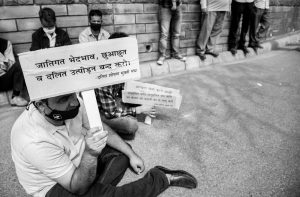
Shimla/Himachal Pradesh/India-September 16, 2020: A protestor sitting on ground while holding a placard during a protest held by people of dalit community outside the HP Vidhan Sabha.
Editorial credit: Madan Sehgal / shutterstock.com
- Saudi Arabia: Systemic Gender and Sectarian Discrimination
Introduction to Discrimination in Saudi Arabia
Saudi Arabia, an absolute monarchy, is often regarded as one of the most repressive societies in the world, particularly in terms of gender and sectarian discrimination. While the country is modernizing in certain areas, its legal and social systems still promote systemic discrimination, particularly against women and the Shia Muslim minority. For decades, these practices have drawn global criticism, yet Saudi Arabia remains one of the United States’ most crucial strategic allies in the Middle East. This relationship is based on several factors: economic interests (primarily oil), military cooperation, and regional security, particularly in the context of countering Iran’s influence.
The U.S. continues to support Saudi Arabia despite these discriminatory policies, prioritizing strategic goals over concerns about human rights. In this section, we will explore the apartheid-like conditions faced by women and the Shia minority in Saudi Arabia, as well as the reasons behind U.S. support for the Saudi regime.
Gender Apartheid: Systemic Discrimination Against Women
Saudi Arabia’s treatment of women has been likened to gender apartheid due to the legal and social restrictions imposed on them, which severely limit their freedom and equality. Under the country’s guardianship system, women are legally considered to be under the authority of their male relatives, including their fathers, husbands, brothers, and even sons. This system dictates that women must seek permission from their male guardians to perform basic activities, such as traveling, marrying, or obtaining medical treatment.
Despite some recent reforms, such as allowing women to drive and easing some guardianship restrictions, Saudi women still face significant obstacles in terms of political representation, legal rights, and economic participation. The country’s strict interpretation of Sharia law enforces gender segregation in public spaces, and women’s employment opportunities are often limited by cultural and legal constraints.
The U.S. has long been criticized for its close alliance with Saudi Arabia, given the regime’s treatment of women. However, American policymakers have historically downplayed these concerns in favor of maintaining the strategic partnership that is seen as crucial for U.S. interests in the Middle East. The U.S. has consistently prioritized issues such as oil security, arms sales, and counterterrorism cooperation over pressure for meaningful reforms on women’s rights.
Sectarian Discrimination: The Shia Minority in Saudi Arabia
Another dimension of apartheid-like conditions in Saudi Arabia is the systemic discrimination faced by the Shia Muslim minority, primarily concentrated in the Eastern Province. Shia Muslims make up about 10-15% of the population, but they are marginalized both politically and socially. They face restrictions in practicing their religion, limited access to public services, and are often excluded from key government and military positions.
The Saudi government, dominated by the Sunni Wahhabi interpretation of Islam, views the Shia community with suspicion, partly due to fears of Iranian influence, given Iran’s status as a Shia-majority country and a regional rival. This sectarian tension has resulted in discriminatory policies and violence against Shia activists, with the government suppressing any form of dissent or calls for greater rights within the Shia community.
The U.S. response to Saudi Arabia’s treatment of its Shia population has been muted, as Washington views the Saudi government as a key partner in countering Iran’s influence in the region. By aligning itself with Saudi Arabia, the U.S. has supported a regime that perpetuates sectarian discrimination while simultaneously positioning itself as a defender of regional stability and counterterrorism.
U.S.-Saudi Relations: Economic Interests and Oil Dependency
One of the main reasons behind U.S. support for Saudi Arabia is the kingdom’s vast oil reserves. Saudi Arabia is one of the largest producers and exporters of oil in the world, and for decades, U.S. foreign policy has been shaped by a desire to ensure a stable and reliable flow of oil from the Middle East. The relationship between the two countries was cemented during World War II when President Franklin D. Roosevelt struck an agreement with King Abdulaziz that promised U.S. protection in exchange for secure oil supplies.
Although the U.S. has become more energy independent in recent years, oil remains a critical factor in its relationship with Saudi Arabia. The global economy still relies heavily on Saudi oil, and any instability in the kingdom could have far-reaching consequences for energy markets worldwide. Thus, the U.S. has been willing to overlook Saudi Arabia’s human rights abuses in favor of maintaining this economic partnership.
Military Cooperation and Arms Sales
Beyond economic interests, military cooperation forms the cornerstone of U.S.-Saudi relations. Saudi Arabia is one of the largest purchasers of U.S. military equipment, with billions of dollars in arms sales occurring over the past few decades. This military cooperation is seen as essential for both countries: for the U.S., it provides lucrative contracts for its defense industry, while for Saudi Arabia, it ensures access to the latest technology and military hardware to protect the regime from internal and external threats.
In addition to arms sales, the U.S. has a significant military presence in Saudi Arabia, with troops stationed there since the Gulf War. Saudi Arabia’s geographic position makes it a strategic location for U.S. military operations in the region, particularly in terms of counterterrorism and containing Iran’s influence. This military cooperation has been prioritized over concerns about the kingdom’s domestic policies, including its discriminatory practices toward women and the Shia population.
U.S. Policy and the War in Yemen
Another major issue in U.S.-Saudi relations is the war in Yemen, where Saudi Arabia has led a military coalition against the Houthi rebels since 2015. The conflict has resulted in a humanitarian disaster, with thousands of civilians killed, widespread famine, and the destruction of vital infrastructure. Saudi Arabia’s conduct in the war, including airstrikes that have targeted civilian areas, has drawn widespread condemnation from human rights organizations.
The U.S. has provided critical support to the Saudi-led coalition in Yemen, including arms sales, logistical assistance, and intelligence sharing. This support has been heavily criticized, both domestically and internationally, as the U.S. is seen as complicit in the war’s devastating effects on Yemeni civilians. Despite this, the U.S. has continued its support, viewing the war as part of a broader effort to counter Iranian influence in the region, as Iran is believed to be backing the Houthi rebels.
The U.S. role in the Yemen conflict reflects the broader realpolitik approach to its relationship with Saudi Arabia. While human rights concerns, including gender and sectarian discrimination, are raised by civil society and some members of Congress, they are often overshadowed by the perceived strategic necessity of maintaining a close alliance with Saudi Arabia.
Balancing Moral Values and Strategic Interests
The U.S.-Saudi relationship highlights the fundamental tension between America’s stated commitment to promoting human rights and its reliance on strategic alliances that contradict those values. Over the years, various U.S. administrations have faced criticism for continuing to support a regime that systematically discriminates against women and religious minorities, while engaging in aggressive military actions that exacerbate regional instability.
For example, the murder of journalist Jamal Khashoggi in 2018, carried out by Saudi agents at the Saudi consulate in Istanbul, led to a temporary reevaluation of U.S.-Saudi relations. While there was bipartisan outrage in the U.S. over the assassination, concrete policy changes were limited. The U.S. imposed sanctions on a few individuals but avoided taking any significant actions against Crown Prince Mohammed bin Salman, who is widely believed to have authorized the killing. This incident underscores the broader U.S. reluctance to take actions that could jeopardize its strategic partnership with Saudi Arabia, even in the face of gross human rights violations.
Reforms and the Future of U.S.-Saudi Relations
In recent years, Saudi Arabia has undertaken several high-profile reforms under Crown Prince Mohammed bin Salman as part of his Vision 2030 initiative, which aims to diversify the economy and reduce the kingdom’s dependence on oil. Some of these reforms, such as allowing women to drive and expanding women’s participation in the workforce, have been hailed as steps in the right direction. However, critics argue that these reforms are largely cosmetic and do not address the deeper systemic issues of gender and sectarian discrimination.
For the U.S., these reforms provide a convenient narrative for continuing its close relationship with Saudi Arabia while deflecting criticism of the kingdom’s human rights record. The Biden administration has taken a more critical stance on Saudi Arabia than its predecessors, particularly regarding the war in Yemen, but the underlying strategic relationship remains intact.
Moving forward, the U.S. will continue to face the challenge of balancing its strategic interests in Saudi Arabia with growing domestic and international pressure to hold the kingdom accountable for its human rights abuses. As long as oil and military cooperation remain central to U.S.-Saudi relations, it is unlikely that the U.S. will significantly alter its approach, even in the face of apartheid-like conditions within the kingdom.
Conclusion: U.S. Support for Saudi Arabia’s Discriminatory Regime
The U.S. continues to support Saudi Arabia despite its systemic discrimination against women and the Shia minority, primarily due to strategic interests related to oil security, military cooperation, and countering Iran’s influence in the region. While there has been criticism of U.S. complicity in Saudi Arabia’s human rights abuses, these concerns have largely been outweighed by the perceived necessity of maintaining a strong alliance with the kingdom. The U.S.-Saudi relationship exemplifies the realpolitik approach that has defined much of U.S. foreign policy, where economic and geopolitical interests often take precedence over moral considerations.

Riyadh, Saudi Arabia – December 14 2018: Saudi girls and women in SAUDIA Ad Diriyah E-Prix event in Diriyah
Editorial credit: Moatassem/ shutterstock.com
- Other Potential Cases of Apartheid-like Systems
Bahrain: Sectarian Discrimination Against the Shia Majority
Bahrain, a small Gulf monarchy, has been the site of significant sectarian tension, with the Sunni royal family ruling over a Shia majority population. Much like Saudi Arabia, Bahrain systematically discriminates against its Shia citizens, particularly in terms of political representation, access to public services, and participation in the security forces. The government has responded to protests and demands for greater rights by the Shia population with violent crackdowns, including the use of tear gas, mass arrests, and torture.
The U.S. maintains a close relationship with Bahrain, largely due to the presence of the U.S. Navy’s Fifth Fleet, which is headquartered in the country. Bahrain’s strategic location in the Persian Gulf makes it an important ally for the U.S., particularly in terms of countering Iran’s influence in the region. As with Saudi Arabia, the U.S. has largely overlooked Bahrain’s human rights abuses in favor of maintaining this military relationship.
China: Treatment of Uyghur Muslims in Xinjiang
China’s treatment of its Uyghur Muslim population in the Xinjiang region has drawn widespread condemnation, with some human rights organizations describing it as a form of cultural and ethnic apartheid. The Chinese government has implemented a series of repressive policies in Xinjiang, including mass surveillance, forced labor, and the internment of over a million Uyghurs in what Beijing calls “re-education camps.” The goal of these policies appears to be the forced assimilation of Uyghurs into Han Chinese culture, erasing their religious and cultural identity.
The U.S. has taken a stronger stance on China’s human rights abuses in Xinjiang compared to other cases, with the Trump and Biden administrations both imposing sanctions on Chinese officials and companies involved in the repression. However, broader U.S.-China relations are primarily shaped by economic competition and geopolitical rivalry, meaning that human rights issues, while important, are often secondary to strategic concerns.
The Philippines: Discrimination Against Indigenous and Muslim Populations
In the Philippines, indigenous groups and Muslim populations, particularly in the Mindanao region, have long faced systemic discrimination and marginalization. Successive Philippine governments have engaged in military campaigns against Muslim insurgents, leading to significant displacement and violence against civilian populations. While the situation does not fit the traditional definition of apartheid, the ongoing conflict and marginalization of these groups create conditions of segregation and inequality.
The U.S. has maintained a close military alliance with the Philippines, particularly through the Mutual Defense Treaty, which has allowed for joint military exercises and U.S. access to Philippine bases. As with other cases, the U.S. has largely prioritized military and strategic interests over concerns about internal discrimination and human rights abuses.
Russia: Treatment of Ethnic Minorities in the Caucasus
Russia’s treatment of ethnic minorities, particularly in the North Caucasus region (including Chechnya, Dagestan, and Ingushetia), has been characterized by widespread human rights abuses, including extrajudicial killings, torture, and the suppression of political dissent. The Russian government, under President Vladimir Putin, has implemented heavy-handed policies to maintain control over these regions, which have long been centers of resistance to Moscow’s rule.
The U.S. relationship with Russia is shaped primarily by broader geopolitical tensions, particularly regarding Ukraine, Syria, and cyber-security issues. While the U.S. has criticized Russia’s human rights record, including its treatment of ethnic minorities, these issues are often overshadowed by larger strategic concerns.
Conclusion: A Comparative Analysis of U.S. Support for Apartheid-like Systems
The U.S. has consistently faced criticism for its support of regimes that engage in apartheid-like practices, whether through systemic discrimination based on gender, ethnicity, or religion. In each of the cases discussed—Saudi Arabia, Bahrain, China, the Philippines, and Russia—strategic interests, such as military cooperation, economic partnerships, and geopolitical competition, have outweighed concerns about human rights.
While the U.S. occasionally imposes sanctions or criticizes these regimes, its foreign policy is primarily driven by realpolitik, where the need for security, stability, and influence often takes precedence over moral imperatives. As a result, the U.S. continues to support regimes that perpetuate inequality and systemic discrimination, despite its professed commitment to democracy and human rights.
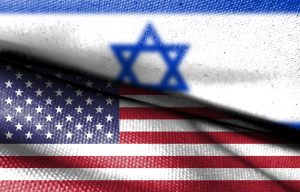
The American flag and the Israeli flag are both made from fabric patterns. Concept image depicting U.S. support for Israel.
Editorial credit: Andy.LIU / shutterstock.com
- The Realpolitik of U.S. Foreign Policy and Apartheid Systems
Strategic Interests vs. Moral Values in U.S. Foreign Policy
U.S. foreign policy has often been marked by a tension between the country’s professed commitment to human rights and democracy and its strategic interests in maintaining relationships with authoritarian and discriminatory regimes. This tension is exemplified by U.S. support for countries with apartheid-like systems, where systemic oppression is tolerated in favor of broader geopolitical goals. This section explores the realpolitik underpinning U.S. foreign policy and the reasons why the U.S. continues to support regimes that contradict its stated values.
Economic and Military Interests
One of the primary drivers of U.S. support for regimes with apartheid-like practices is economic interest. In many cases, the U.S. has significant financial stakes in maintaining relationships with these countries, whether through access to natural resources, trade partnerships, or defense contracts. For example, Saudi Arabia’s vast oil reserves and its role as a major purchaser of U.S. military equipment have led the U.S. to prioritize economic and military cooperation over human rights concerns.
Similarly, the U.S. often views its military alliances as crucial for maintaining global stability and security, even when these alliances involve regimes with questionable human rights records. In regions like the Middle East and Southeast Asia, the U.S. has supported authoritarian governments in exchange for military cooperation, intelligence sharing, and access to key strategic locations. This pragmatic approach often leads to U.S. complicity in the systemic discrimination and oppression perpetuated by its allies.
Counterterrorism and Regional Stability
Another key factor in U.S. support for regimes with apartheid-like systems is the role these countries play in U.S. counterterrorism efforts and regional stability. In countries like Saudi Arabia, Bahrain, and the Philippines, U.S. support is often justified on the grounds that these governments are essential partners in the fight against terrorism. This rationale has been used to overlook human rights abuses and systemic discrimination, with U.S. policymakers arguing that regional stability is more important than pushing for immediate reforms.
For example, in the case of Saudi Arabia, U.S. officials have long argued that the kingdom’s cooperation in counterterrorism operations, particularly in Yemen and against groups like al-Qaeda, outweighs concerns about its domestic policies. Similarly, in the Philippines, U.S. military support has been framed as necessary for combating Islamist insurgencies in Mindanao, despite ongoing discrimination against Muslim populations.
The Role of Domestic Politics and Lobbying
U.S. foreign policy decisions are also influenced by domestic politics, particularly the role of lobbying and special interest groups. In cases like Israel, where apartheid allegations have been raised in the context of the Israeli-Palestinian conflict, powerful lobbying groups play a significant role in shaping U.S. policy. The American Israel Public Affairs Committee (AIPAC), for example, exerts considerable influence over U.S. lawmakers, ensuring that support for Israel remains a central tenet of U.S. foreign policy, despite growing criticism of Israeli policies in the occupied territories.
In other cases, the defense industry has a vested interest in maintaining strong military relationships with countries that purchase large amounts of U.S. weaponry, such as Saudi Arabia and the UAE. The arms industry, through its lobbying efforts, ensures that military sales remain a priority, even in the face of growing concerns about human rights abuses.
The Cost of U.S. Support for Apartheid-like Systems
While the U.S. often justifies its support for regimes with apartheid-like systems in terms of economic, military, and strategic interests, there are long-term costs associated with these relationships. One of the most significant costs is the erosion of U.S. credibility as a global advocate for democracy and human rights. By aligning itself with repressive regimes, the U.S. undermines its moral authority and risks alienating democratic movements and civil society organizations around the world.
Additionally, U.S. support for discriminatory regimes can contribute to long-term instability. In many cases, the systemic oppression of minority groups or women leads to social unrest, fueling protests, insurgencies, and violence. By supporting these regimes, the U.S. may inadvertently contribute to the very instability it seeks to avoid.
Examples of When U.S. Support Has Backfired
Throughout history, U.S. support for authoritarian regimes has often led to unintended consequences, including long-term instability, anti-American sentiment, and the rise of extremist movements. In cases like Iran, Iraq, and Libya, U.S. backing for repressive leaders eventually led to regime changes that destabilized entire regions. For example, U.S. support for the Shah of Iran in the 20th century helped fuel the 1979 Iranian Revolution, which resulted in the establishment of an anti-American theocratic regime.
Similarly, in Iraq, U.S. support for Saddam Hussein during the Iran-Iraq War of the 1980s backfired when Hussein invaded Kuwait in 1990, leading to the Gulf War and ultimately the U.S.-led invasion of Iraq in 2003. The collapse of Hussein’s regime resulted in years of instability and the rise of extremist groups like ISIS, which continue to destabilize the region.
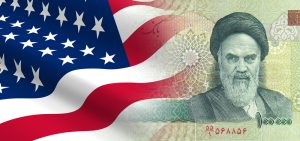
The concept of economic and political relationships the United States with Iran.
Editorial credit: ppart / shutterstock.com
Conclusion: The Realpolitik Dilemma
The U.S. faces an ongoing dilemma in balancing its strategic interests with its commitment to human rights and democratic values. While realpolitik considerations often lead to support for regimes with apartheid-like systems, this approach carries long-term risks, including the erosion of U.S. credibility and the potential for future instability. As the global landscape continues to evolve, the U.S. will need to carefully navigate these challenges, finding ways to promote its interests while maintaining its moral leadership on the world stage.
- Conclusion: Future of U.S. Support for Apartheid-like Regimes
Changing Global Dynamics: The Rise of China and Russia
The future of U.S. support for apartheid-like regimes will be influenced by the shifting global balance of power, particularly the rise of China and Russia as alternative partners for authoritarian governments. Countries that face criticism from the U.S. and the West for their human rights abuses may increasingly turn to China and Russia for economic and military support. Both Beijing and Moscow have shown a willingness to engage with regimes that face international condemnation, providing an alternative to Western sanctions and diplomatic pressure.
For the U.S., this changing landscape presents a dilemma. While the U.S. has traditionally been able to leverage its economic and military influence to maintain alliances with authoritarian regimes, the growing presence of China and Russia in global affairs means that these regimes now have other options. This could reduce the U.S.’s ability to pressure its allies on human rights issues, as these governments may seek support from China or Russia instead.
Public Opinion and Growing Scrutiny
In addition to shifting global dynamics, public opinion in the U.S. and other Western countries is increasingly critical of government support for authoritarian regimes. The rise of social media and increased access to information have allowed human rights abuses to be more widely documented and disseminated, leading to greater scrutiny of U.S. foreign policy.
Grassroots movements, particularly those advocating for Palestinian rights, the rights of women in Saudi Arabia, or the plight of the Rohingya in Myanmar, have gained significant traction in recent years. These movements put pressure on U.S. lawmakers to reconsider their support for regimes that perpetuate systemic discrimination. As these movements grow, U.S. policymakers may face greater challenges in justifying alliances with regimes that engage in apartheid-like practices.
Prospects for Reform in U.S. Foreign Policy
Looking ahead, there is potential for reform in U.S. foreign policy regarding support for apartheid-like regimes. Some lawmakers, particularly within progressive factions of the Democratic Party, have called for a reevaluation of U.S. alliances with repressive governments, urging a greater emphasis on human rights. These voices argue that the U.S. should not provide military aid or economic support to regimes that violate international human rights standards.
However, meaningful reform will likely face significant obstacles, particularly from interest groups that benefit from maintaining the status quo, such as the defense industry and pro-Israel lobbying organizations. Additionally, the strategic imperatives that drive U.S. support for these regimes—such as counterterrorism, oil security, and geopolitical competition with China and Russia—are unlikely to disappear in the near future.
Lessons Learned and Future Scenarios
The U.S. has a long history of supporting authoritarian regimes, often for strategic reasons, but the lessons of the past suggest that this approach can have long-term consequences. Supporting regimes that engage in systemic discrimination, whether based on gender, religion, or ethnicity, undermines U.S. credibility and can contribute to future instability. In many cases, the oppression of marginalized groups leads to social unrest, fueling violence and extremism.
Moving forward, the U.S. will need to find a balance between its strategic interests and its commitment to human rights. This may involve rethinking military alliances, reducing arms sales to repressive regimes, and supporting democratic movements and civil society organizations that advocate for change. While this approach may be more difficult in the short term, it could help the U.S. maintain its moral leadership and prevent future crises.
Conclusion
The future of U.S. support for apartheid-like regimes will depend on a variety of factors, including shifting global dynamics, public opinion, and the balance between strategic interests and human rights. While realpolitik considerations will likely continue to shape U.S. foreign policy, there is growing pressure for the U.S. to reconsider its support for regimes that engage in systemic discrimination. How the U.S. navigates these challenges will have significant implications for its role in the world and its standing as a champion of democracy and human rights.

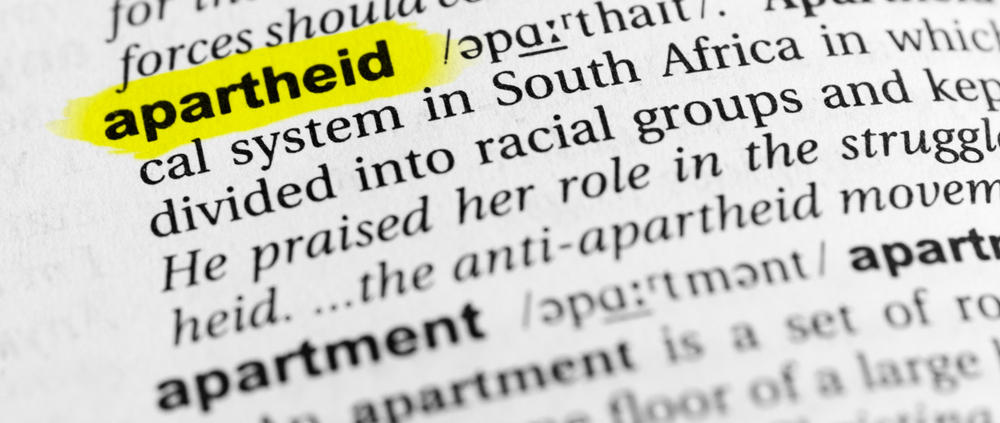

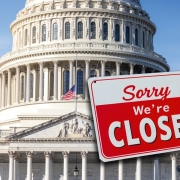


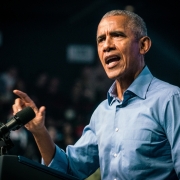






Leave a Reply
Want to join the discussion?Feel free to contribute!